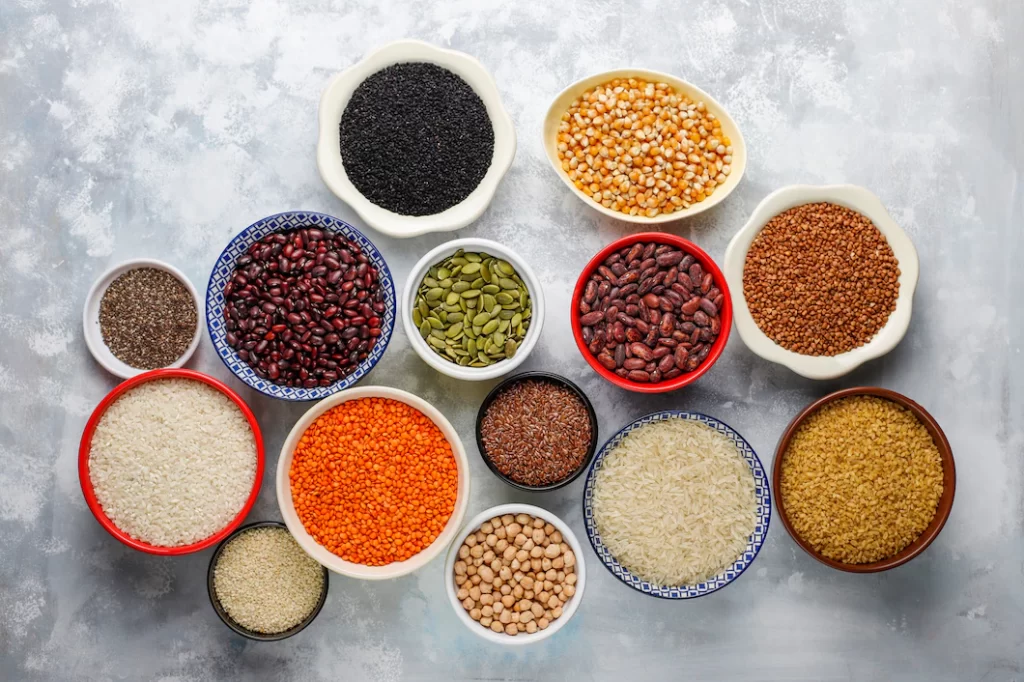A healthy diet is a balanced and comprehensive system, and there is no single type of superfood that we may consider when eating alone is the fulfillment of all our health, physical and immune demands.
Be confident that there is no food that may be miraculous and have a magical effect on health alone without following a healthy lifestyle that includes a healthy and comprehensive diet in all its aspects.
Recently, there has been talk about specific types of foods, which are called superfoods, which many believe that when included in their daily food may do what a healthy diet does, and have a strong effect on their immunity and bodies, but unfortunately, it will not be so, why? Here is the answer by introducing you to the characteristics of a healthy diet and the reality of superfoods in the following:
What is the definition of a healthy diet?
A healthy diet is a balanced diet that includes all nutrients, which provides benefits for the body as a whole. According to the British Ministry of Health, to get a healthy balanced diet, you must:
Eat an appropriate amount of food to suit your daily activity.
Eat a variety of foods from all food groups.
What do we mean by superfoods?
Some have defined superfoods as naturally occurring foods that are low in calories and high in nutrients. They are a rich source of antioxidants that vary in quantity from one type to another, and contain a number of necessary nutrients.
It has several health benefits to the body, including: preventing cancer, preventing heart disease, reducing cholesterol levels, enhancing immunity, preventing infections, a role in reducing weight, increasing metabolic rates, and promoting digestive health.
However, scientifically and more precisely, it may not be possible to adopt an official definition of superfood, as some governmental and official agencies have prohibited the use of this term in publicity and in the world of marketing for a particular product, if there is no firm and clear scientific evidence supporting the subject, and this did not prevent the continuation of research and studies conducted on These types of foods.
The marketers of some foods aspire to convince us that eating some foods can slow down the aging process and prevent depression, and many people may like this, and it may even be very encouraging for them, especially in some health and disease cases, which may think that in a certain type of food. She will find a cure and a solution to her problem.
The problem is that most of the research on superfoods has been just tests of chemicals and concentrated extracts and not found in food in its natural state.
Garlic like it contains nutrients purported to help reduce cholesterol and blood pressure, but you have to eat up to 28 cloves daily to match the doses used in the lab which won’t be easy to experiment with.


What is the opinion of nutritionists about superfoods?
Some of the concerns of proper nutritionists indicate that encouraging the eating of some individual foods may affect the quality of other foods eaten, and may make some people tend to eat unhealthy foods, and of course this may pose a big problem, even with foods high in their nutritional values, they will not be Substitute for other foods.
Hence, nutritionists avoid calling superfoods a specific type of food, but tend to use the term super healthy diet, which has the advantage of being a balanced and comprehensive system, rich in vegetables, fruits and whole grains.
A well-known example of this is a healthy diet. The Mediterranean diet is known for its focus on vegetables, fruits, fish, olive oil, and legumes, with small amounts of red meat, fats, and salts, and many studies have found its relationship to the prevention of some chronic diseases. for those who follow it.
Any examples of superfoods?
Examples of foods that have been called a superfood include broccoli, cranberries, garlic, pomegranate juice, beetroot, green tea, chocolate, and fatty fish.
Most of its characteristics that distinguished it were its high content of antioxidants known to protect against the effect of free radicals, protect cells from damage and help prevent cancer, in addition to omega-3 fatty acids.
However, we still need more studies and evidence to confirm the pros and cons of the different types of antioxidants.
In conclusion, we may here advise you to take advantage of what was claimed to be a superfood within a comprehensive, balanced and appropriate healthy diet for you, as long as there is hope that it will have a role in reducing the risk of chronic diseases, such as: heart disease, stroke, and cancer.








